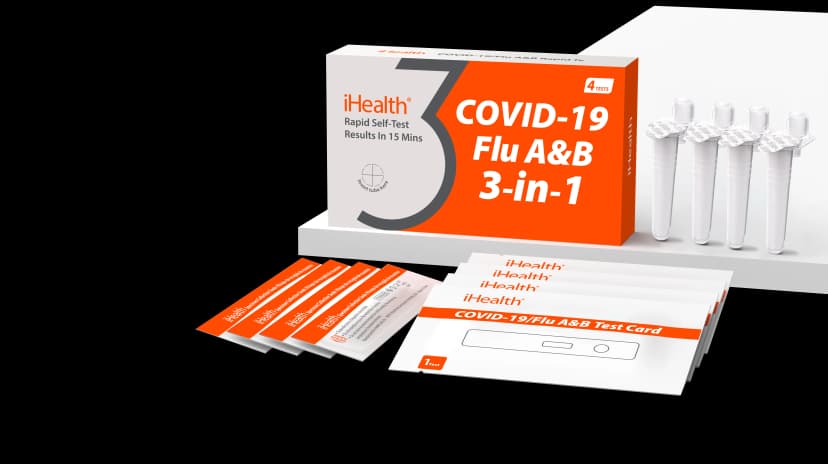Stress is something everyone deals with, but knowing how to handle it can make a big difference in your life. This article will explore various ways to manage stress, from physical activities to mindfulness techniques. By understanding and applying these methods, you can improve your well-being and lead a more balanced life.
Key Takeaways
- Mindfulness practices like meditation and deep breathing can help calm your mind.
- Regular physical activity, including yoga, can reduce stress levels.
- Eating a healthy diet and staying hydrated are crucial for managing stress.
- Building a strong support system can provide emotional relief.
- Creative activities like art, writing, and music can be great stress relievers.
Understanding Stress and Its Impact
Physical Effects of Stress
Stress can affect your body in many ways. It can cause headaches, muscle tension, and even chest pain. You might also notice changes in your sleep patterns or appetite. Over time, these physical symptoms can lead to more serious health problems.
Emotional Consequences
Emotionally, stress can make you feel overwhelmed, anxious, or depressed. It can also affect your mood and relationships with others. You might find it hard to concentrate or make decisions when you're stressed.
Long-term Health Risks
If stress continues for a long time, it can increase the risk of chronic diseases. These include heart disease, diabetes, and mental health disorders. Managing stress is important to maintain overall health and well-being.
Taking steps to manage stress can improve your quality of life and help you stay healthy.
Mindfulness and Meditation Techniques
Guided Meditation
Guided meditation involves listening to a guide or instructor who helps you through the meditation process. This can be done through apps, videos, or in-person sessions. It helps you focus your mind and relax your body. You can practice it anywhere, whether you're at home or on the go.
Deep Breathing Exercises
Deep breathing exercises are simple yet effective ways to reduce stress. By taking slow, deep breaths, you can calm your mind and body. Try to breathe in deeply through your nose, hold for a few seconds, and then exhale slowly through your mouth. Repeat this process several times to feel more relaxed.
Progressive Muscle Relaxation
Progressive muscle relaxation involves tensing and then slowly relaxing different muscle groups in your body. Start from your toes and work your way up to your head. This technique helps release physical tension and promotes a sense of calm. It can be especially useful before bedtime to help you sleep better.
Practicing mindfulness and meditation regularly can make a big difference in your overall stress levels. It brings you back to the present moment, helping you let go of worries about the past or future.
Incorporating Physical Activity
Benefits of Regular Exercise
Engaging in regular physical activity can significantly boost your mood by releasing feel-good chemicals called endorphins. Exercise helps refocus your mind on your body's movements, which can make daily irritations fade away. Regular exercise also improves your overall health, making you feel more energetic and less stressed.
Yoga for Stress Relief
Yoga combines physical postures, breathing exercises, and meditation to create a holistic approach to stress relief. Practicing yoga can help you become more aware of your body and mind, promoting relaxation and reducing stress levels. Even a few minutes of yoga each day can make a big difference.
Simple Daily Activities
If you don't have time for a formal exercise program, you can still find ways to move throughout your day. Here are some easy tips to incorporate exercise into your daily schedule:
- Bike instead of driving to the store.
- Use the stairs instead of the elevator.
- Park as far as you can from the door.
- Hand-wash your car.
- Clean your house.
- Walk on your lunch break.
Even small activities can add up over the course of a day. The first step is to get yourself up and moving.
The Role of Nutrition in Stress Management
Healthy Diet Choices
Eating a balanced diet can help you manage stress better. Foods like eggs, avocados, and walnuts can support your mood and energy levels. Maintaining proper nutrition helps your body and mind feel better, making it easier to handle stress.
Stress Relief Supplements
Some vitamins and supplements might help reduce stress. A daily multivitamin can address nutritional gaps and ensure you get the necessary vitamins and minerals. Other helpful supplements include:
- Vitamin C
- Magnesium
- Omega-3 fatty acids
Hydration and Stress
Staying hydrated is crucial for managing stress. Dehydration can lead to headaches and fatigue, which can increase stress levels. Make sure to drink enough water throughout the day to keep your body and mind functioning well.
Proper nutrition and hydration are key to managing stress effectively. By making mindful choices about what you eat and drink, you can support your overall well-being and reduce stress.
Building a Support System
Importance of Social Connections
Humans are naturally social creatures. Having strong connections with others is crucial for emotional well-being. Whether it's family, friends, or colleagues, these relationships provide a sense of belonging and support during tough times.
Seeking Professional Help
Sometimes, talking to friends and family isn't enough. In such cases, seeking help from a professional, like a therapist or counselor, can be beneficial. They can offer guidance and strategies to manage stress effectively.
Community and Group Activities
Engaging in community activities or joining groups with shared interests can also be a great way to build a support system. Activities like sports, clubs, or volunteer work not only help you meet new people but also provide a sense of purpose and belonging.
Building a strong support system is essential for managing stress and improving overall well-being. Don't hesitate to reach out and connect with others.
Creative Outlets for Stress Relief
Art and Craft Activities
Engaging in art and craft activities can be a wonderful way to relieve stress. Whether it's painting, drawing, or knitting, these activities allow you to express yourself and take your mind off worries. Creating something with your hands can be incredibly therapeutic.
Writing and Journaling
Writing and journaling are excellent ways to process your thoughts and emotions. Keeping a journal can help you understand your feelings better and find solutions to problems. Try setting aside a few minutes each day to write about your experiences and feelings.
Music and Dance
Listening to music or dancing can quickly lift your mood and reduce stress. Create a playlist of your favorite songs or take a dance break when you feel overwhelmed. Music and dance are powerful tools for emotional expression and can help you feel more relaxed and happy.
Sometimes, the best way to manage stress is to find a creative outlet that allows you to express yourself and take a break from your daily routine.
Practical Lifestyle Changes
Evaluating Priorities
Taking a step back to look at your daily tasks can help you see what really matters. Focus on what is most important and let go of things that aren't. This can make your life feel less overwhelming.
Eliminating Stressors
Identify what causes you stress and find ways to remove or reduce these triggers. Sometimes, small changes can make a big difference. For example, if clutter stresses you out, spend a few minutes each day tidying up.
Positive Self-Talk
The way you talk to yourself can impact how you feel. Practice saying kind and encouraging things to yourself. Instead of thinking, "I can't do this," try saying, "I will do my best." This simple change can boost your mood and confidence.
Making small adjustments in your daily routine can lead to big improvements in your overall well-being.
Utilizing Sensory Techniques
Aromatherapy
Aromatherapy uses essential oils to improve well-being. Scents like lavender and chamomile can help you relax. You can use a diffuser, add oils to a bath, or simply inhale them directly. Experiment with different scents to find what works best for you.
Hugs and Physical Touch
Physical touch can be incredibly soothing. Hugs, holding hands, or even petting an animal can lower stress levels. These actions release oxytocin, a hormone that promotes feelings of connection and calm.
Engaging the Senses
Engaging your senses can quickly reduce stress. Here are some ways to do it:
- Sight: Look at a favorite photo or a beautiful scene.
- Sound: Listen to calming music or nature sounds.
- Taste: Savor a piece of chocolate or a favorite snack.
- Touch: Feel the texture of a soft blanket or a stress ball.
- Smell: Inhale a comforting scent like vanilla or peppermint.
Finding the right sensory technique for you may take some trial and error, but the benefits are worth it.
Conclusion
Managing stress is essential for maintaining both mental and physical health. By trying out different techniques like deep breathing, guided imagery, or even taking a walk, you can find what works best for you. Remember, there's no one-size-fits-all solution, so it's important to experiment and see what helps you feel calm and in control. Whether it's through exercise, spending time with loved ones, or practicing mindfulness, taking steps to manage stress can greatly improve your quality of life. Stay proactive and make stress management a part of your daily routine.
Frequently Asked Questions
What are some effective ways to manage stress?
Some effective ways to manage stress include guided imagery, meditation, progressive muscle relaxation, deep breathing, going for a walk, hugs, aromatherapy, creativity, a healthy diet, stress relief supplements, leisure activities, positive self-talk, yoga, gratitude, exercise, evaluating priorities, social support, and eliminating stressors.
How can guided meditation help with stress?
Guided meditation can help you take your mind off daily stress. There are many guided meditations available online that can help you find a few minutes of calm.
Why is stress management important?
Stress management is important because it helps you handle stressful situations better and build resilience. It’s not a one-size-fits-all approach, so it’s important to find what works best for you.
What are the 4 As of stress management?
The 4 As of stress management are avoid, alter, accept, and adapt. These are different ways to change the situation or your reaction to it.
Can physical activity help reduce stress?
Yes, physical activity can help reduce stress. Regular exercise, yoga, and even simple daily activities can make a big difference.
How does nutrition play a role in stress management?
Eating a healthy diet, taking stress relief supplements, and staying hydrated can all help manage stress. Good nutrition supports your body and mind, making it easier to handle stress.
























